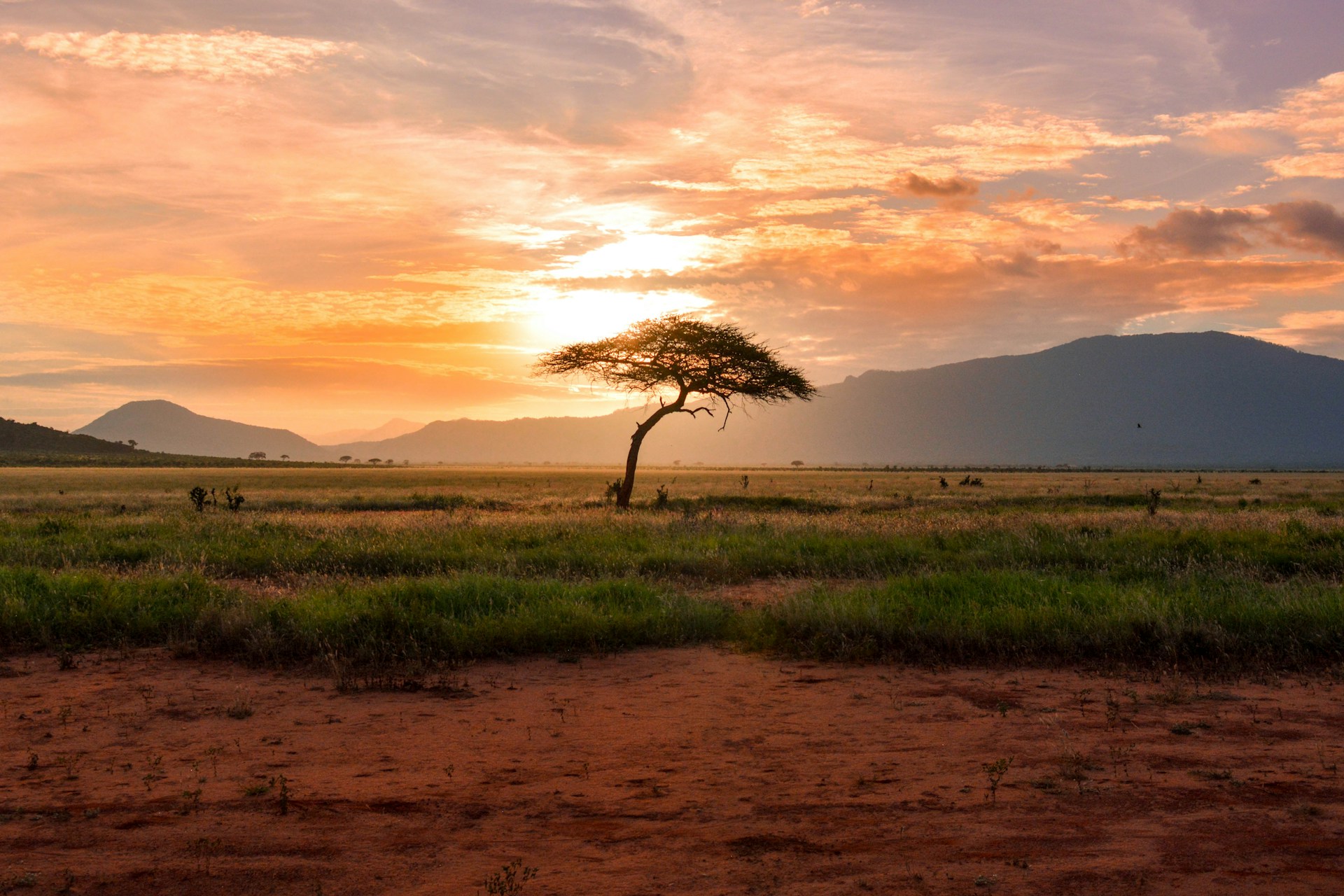Tourism and Hospitality Investments in Africa: Building a Thriving Industry
Africa, often hailed as the “cradle of humanity,” beckons with a tapestry of natural wonders and cultural treasures. Did you know that in the past decade alone, tourist arrivals to Africa have surged by an astounding 30%? This surge paints a vivid picture of a continent coming into its own as a global tourism hub.
From the sweeping savannas of the Serengeti to the majestic Victoria Falls, Africa’s allure knows no bounds. Yet, despite this surge, the tourism and hospitality industry here faces its fair share of challenges. In this exploration, we unravel the pivotal role of investments in tourism, propelling Africa towards economic prosperity and nurturing a vibrant hospitality sector.
The Current State of Tourism and Hospitality in Africa.
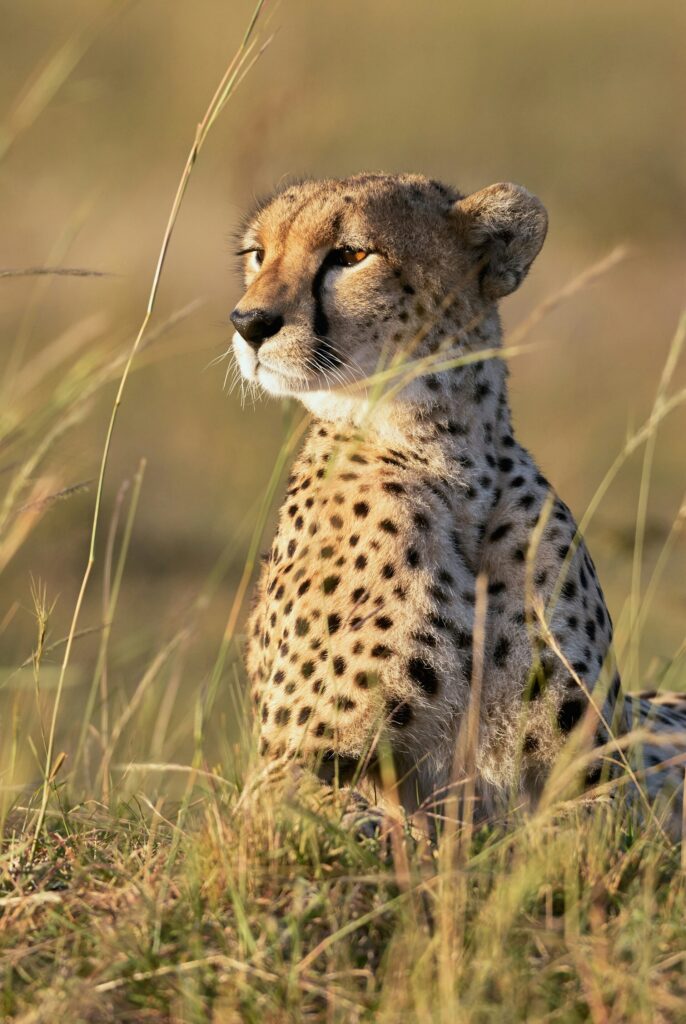
Africa is a continent of unparalleled beauty and diversity. It is home to some of the world’s most iconic wildlife, stunning landscapes, and rich cultural heritage. From the vast savannas of the Serengeti in East Africa to the breathtaking Victoria Falls in Southern Africa, the continent offers a wide range of attractions that can appeal to a broad spectrum of tourists.
The Current State Of Tourism
- Natural Attractions: Africa boasts some of the world’s most renowned natural attractions, including the Sahara Desert, the Nile River, and the African savannas. These landscapes draw tourists from around the globe who seek adventure and the chance to witness the earth’s most remarkable natural phenomena.
- Cultural Heritage: The diverse cultures of Africa provide an opportunity for tourists to experience unique traditions, music, art, and cuisine. Ancient historical sites like the Pyramids of Egypt and the Great Zimbabwe Ruins offer a glimpse into the continent’s rich history.
- Wildlife Tourism: Africa is the ultimate destination for wildlife enthusiasts. National parks and game reserves, such as the Maasai Mara in Kenya and Kruger National Park in South Africa, are havens for those seeking to observe the “Big Five” (the Big Five game animals are the lion, leopard, rhinoceros, elephant, and African buffalo.[ They are examples of charismatic megafauna, featuring prominently in popular culture, and are among the most famous of Africa’s large animals.) and other exotic species in their natural habitats.
The Importance of Investments in Building a Thriving Industry
Investing in the tourism and hospitality industry in Africa is not only essential but also has the potential to bring about transformative change. Here are several reasons why such investments are crucial:
- Economic Growth: Tourism is a major contributor to the GDP of many African countries. Investments in the sector can create jobs, boost local economies, and increase revenue for governments.
- Poverty Alleviation: Tourism can be a powerful tool for poverty reduction in rural and underprivileged areas. The industry provides income-generating opportunities for local communities, reducing poverty levels.
- Cultural Preservation: Tourism investments can help protect and preserve Africa’s rich cultural heritage. By promoting cultural tourism, traditions, languages, and customs can be maintained and celebrated.
- Environmental Conservation: Sustainable tourism practices and responsible investments can contribute to the conservation of Africa’s unique ecosystems and wildlife. This benefits both the environment and the long-term sustainability of the tourism industry.
- Increased Global Visibility: Effective investments can enhance Africa’s image and reputation as a tourism destination. Better marketing and promotion will attract more international visitors, increasing the continent’s global visibility.
Investment Opportunities in the African Tourism and Hospitality Sector
Investors interested in the African tourism and hospitality sector have a range of opportunities to explore:
- Accommodation: The continent needs a variety of accommodation options, from luxury resorts to budget-friendly lodges, to cater to the diverse needs of tourists.
- Transportation: Investments in transportation infrastructure, such as airports, roads, and railways, are critical to improving accessibility to key tourist destinations.
- Tourism Services: The development of tourism-related services, such as tour operators, travel agencies, and adventure sports, presents lucrative opportunities.
- Eco-Tourism and Wildlife Conservation: Investments in eco-tourism and wildlife conservation initiatives are not only profitable but also contribute to environmental sustainability.
- Cultural Tourism: Supporting local cultural experiences, festivals, and events can help promote the rich heritage of Africa.
Successful Case Studies
To illustrate the potential of investments in Africa’s tourism and hospitality industry, we can look at successful case studies:
- Rwanda
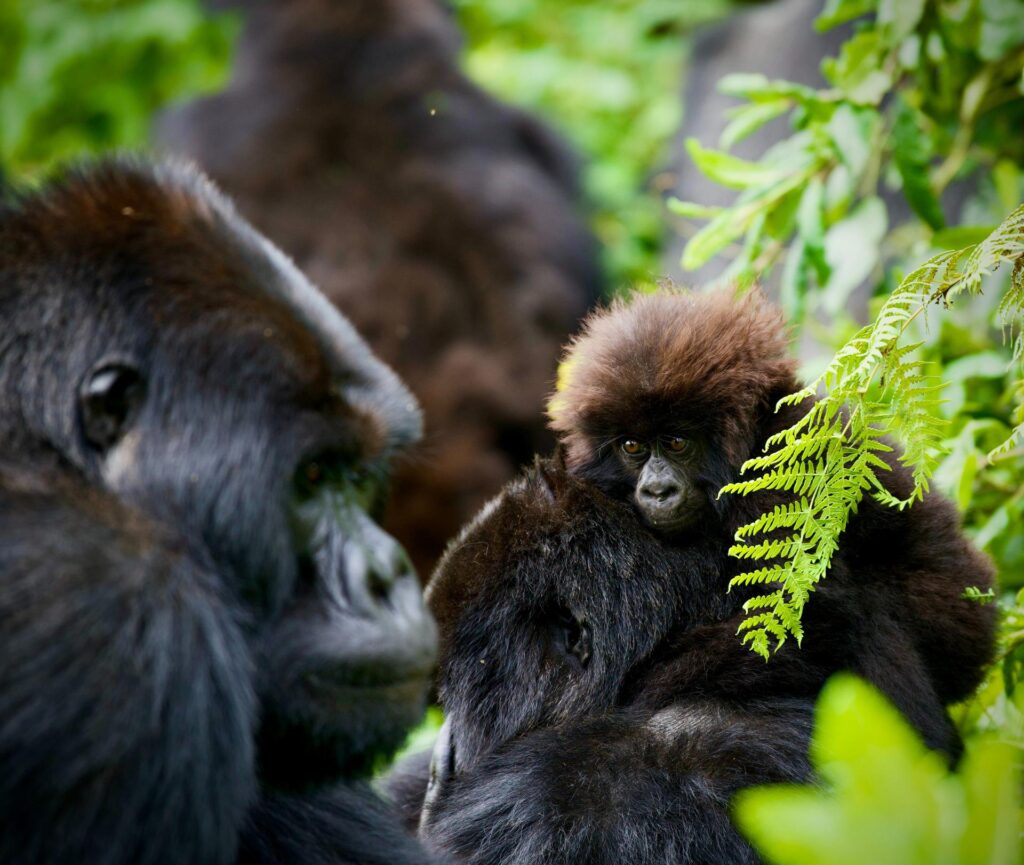
Rwanda has emerged as a model for sustainable tourism growth. The country’s investment in wildlife conservation, particularly the protection of mountain gorillas, has attracted tourists and generated significant revenue. Mountain gorillas in Volcanoes National Park are also among the prime tourist attractions in Rwanda.
Mountain gorillas are a very endangered species remaining in only 3 counties on the planet (Uganda, Rwan, da, and the Democratic Republic of Congo). Volcanoes National Park has 10 habituated gorilla groups that can be tracked by tourists at any time of the year. Mountain gorilla trekking in Rwanda offers remarkable tourism experiences of a lifetime that one can never forget.
Every year, several tourists from all over the world flock to Rwanda to be part of the mountain gorilla tracking experience, and therefore all those planning to should always make their bookings early enough in order not to miss out. Lake Kivu is another leading tourist destination and the best place for those on honeymoons. Lake Kivu is Rwanda’s largest lake located in the western part and has standard resorts and hotels.
Being around Lake Kivu or any of the islands in the lake offers beautiful scenic views of Rwanda and most interestingly, lake Kivu is a hippo and crocodile-free lake therefore one can freely swim in the waters without any fear. While around Lake Kivu, one can go for boat trips, nature walks, and water sports like kayaking and sport fishing.
- South Africa

South Africa’s well-developed tourism industry has been fueled by investments in infrastructure, marketing, and accommodation. The country’s ability to cater to a diverse range of tourists has made it a popular destination. With a population of approximately 41 million and a land area of 1.27 million sq. km (nearly five times the size of the UK), South Africa’s resource base for tourism is phenomenal.
The country’s tourism attractiveness lies in its diversity.
Some of the features that make South Africa an incredibly attractive tourism proposition include: accessible wildlife, varied and impressive scenery, unspoiled wilderness areas, diverse cultures (in particular traditional and township African cultures), generally sunny and hot climate, no ‘jet lag’ from Europe, a well-developed infrastructure and virtually unlimited opportunities for special interest activities such as whale-watching, wild water rafting, hiking, bird-watching, bush survival, deep-sea fishing, hunting, and diving.
In addition, unique archaeological sites, the availability of excellent conference and exhibition facilities, a wide range of sporting facilities, good communication and medical services, internationally known attractions (Table Mountain, Cape of Good Hope, Sun City, Kruger National Park, Garden Route, Maputaland) and unrivaled opportunities to visit other regional internationally known attractions (e.g. Victoria Falls and the Okavango Swamps) make South Africa an almost complete tourist destination.
- Kenya
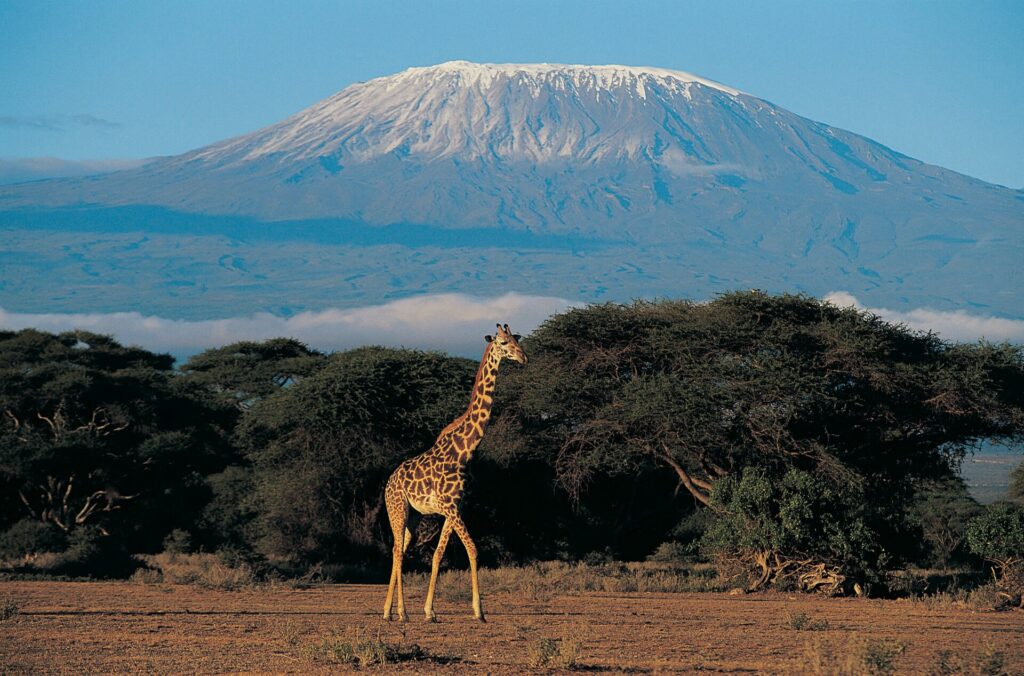
Kenya’s Masai Mara National Reserve has become a global icon for wildlife tourism. Investments in game reserves, lodges, and eco-friendly practices have made it a prime destination for safari enthusiasts.
Kenya offers the tourist many exciting activities to be enjoyed, with one of the most thrilling being a Hot Air Balloon Safari at the break of dawn, concluding with a ‘Champagne Bush Breakfast’ in the scenic wilderness of Masai Mara. This truly unique adventure activity is often one of those ‘Bucket list’ experiences for many travelers visiting Kenya.
Another popular excursion in Kenya, specifically in Masai Mara or Amboseli National Park, is visiting a traditional tribal Maasai village which allows visitors a fascinating insight into the way of life of the famous nomadic Maasai tribe. In addition, one can choose to book everything from guided nature walks, sundowners, bush meals picnics, and horse or camel riding as part of your Safari in Kenya.
With up to 390 species of mammals in Kenya and over 1100 bird species, Kenya has a rich diversity of wildlife, and while out on Safari in one of the many national parks or reserves, it is expected that you would spot not only the ‘Big Five’ as often mentioned widely, but also, in fact, the ‘Big Nine’, to include the Lion, Elephant, Leopard, Buffalo, Rhino, Giraffe, Zebra, Cheetah, and Hippo if in one of the parks which have all these animals.
- Tunisia
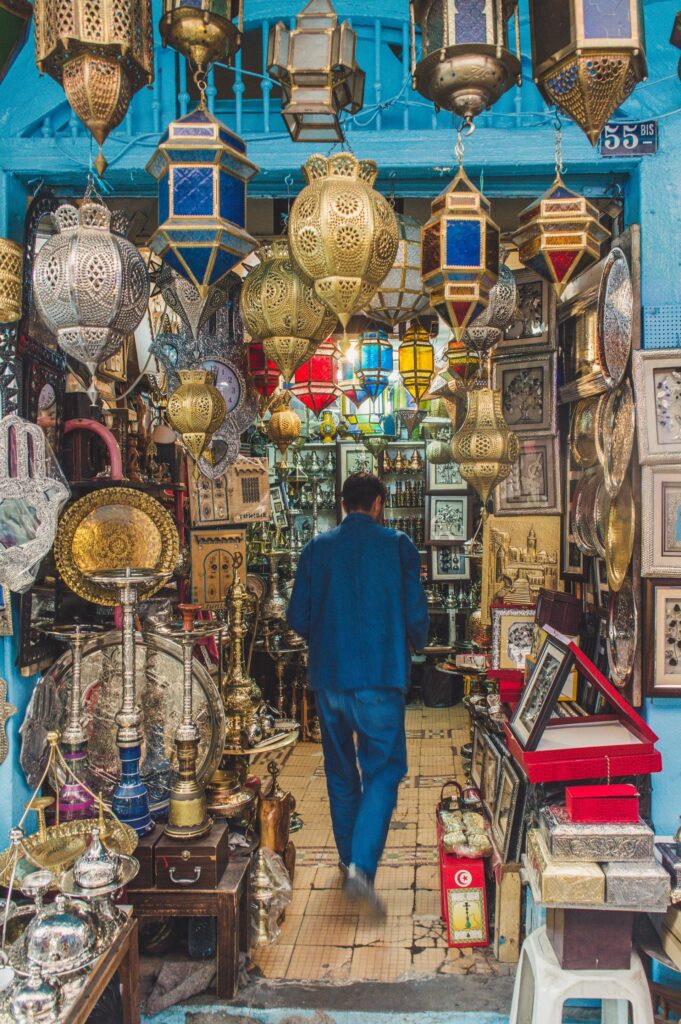
Nestled along the Mediterranean coast, Tunisia’s allure lies in its captivating blend of history, culture, and diverse landscapes. The country stands as an increasingly sought-after destination for global travelers. With echoes of ancient Carthaginian, Roman, and Islamic civilizations, Tunisia offers a tapestry of cultural influences that lend it a distinctive charm.
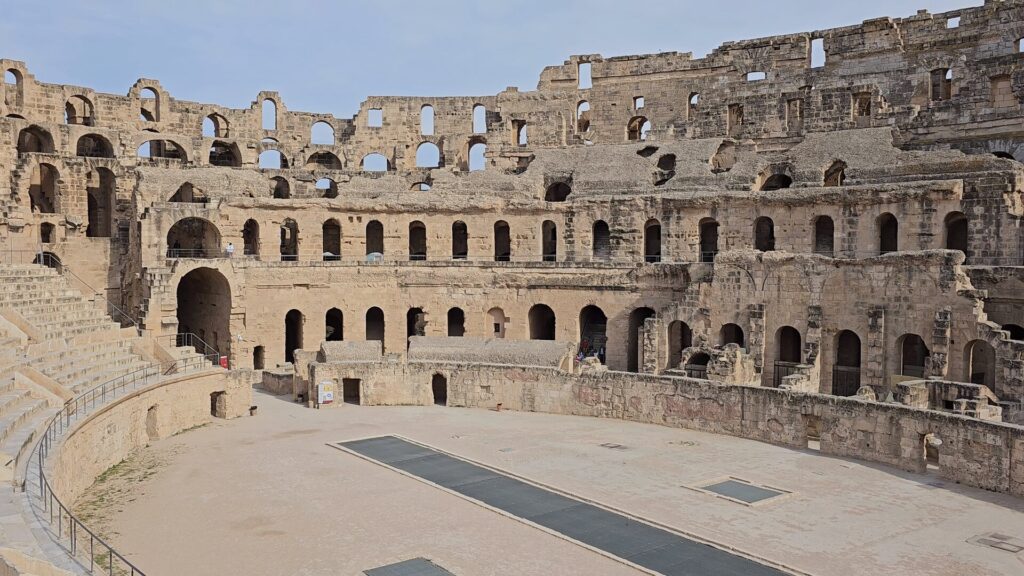
Visitors to Tunisia are greeted by a wealth of attractions. From the sun-kissed beaches of the Mediterranean to the vast, mesmerizing expanse of the Sahara Desert, the country offers a spectrum of experiences. The well-preserved archaeological sites, including the UNESCO World Heritage site of Carthage and the awe-inspiring amphitheater of El Djem, provide windows into Tunisia’s rich historical tapestry. The medinas of bustling cities like Tunis, Sousse, and Kairouan offer a sensory immersion into the country’s vibrant cultural heritage, with bustling markets, historic mosques, and architectural marvels.
Tunisia’s commitment to sustainable tourism has garnered global recognition. The establishment of eco-friendly resorts and initiatives dedicated to preserving natural habitats have drawn travelers seeking responsible and meaningful experiences.
Investments in Tunisia’s tourism sector have been instrumental in enhancing its appeal. Efforts have been made to improve infrastructure, accommodation, and the overall visitor experience. The collaboration between the public and private sectors has played a crucial role in the successful development of Tunisia’s tourism industry.
Despite these assets, Africa’s share of the global tourism market remains relatively small. The continent faces several challenges that impede the growth of its tourism and hospitality sector.
Challenges in the African Tourism and Hospitality Industry
- Infrastructure:
The state of transportation infrastructure poses a significant hurdle to the growth of tourism in Africa. In many regions, roads are poorly maintained or nonexistent, making it difficult for visitors to access key destinations. Airports, while present, often lack modern facilities and efficient operations. Additionally, railways, which could provide a valuable means of transportation, are underdeveloped in many areas.
Insufficient transportation infrastructure, including roads, airports, and railways, limits the accessibility of many tourist destinations in Africa. Poor infrastructure can deter potential visitors and hinder the industry’s growth.
- Security Concerns:
Political instability and security issues in certain regions of Africa have deterred tourists from visiting. Although many areas are safe for travel, negative perceptions persist.
While vast regions of Africa are safe for travel, negative perceptions persist due to isolated incidents of political instability and security issues in certain areas. These incidents, often highlighted in the media, can overshadow the many safe and culturally rich destinations across the continent.
Efforts to address security concerns, both in terms of actual safety measures and in changing public perception, are essential. By highlighting the safety of popular tourist destinations and implementing effective security measures, Africa can build confidence among travelers and encourage more visits.
- Visa Restrictions:
Cumbersome visa processes and associated fees act as a substantial deterrent for potential tourists. The complexity and cost of obtaining visas can discourage travelers from choosing African destinations, even when they are eager to experience the continent’s unique offerings.
Streamlining visa requirements and reducing fees would not only simplify the travel process but also make Africa a more attractive destination for international visitors. This change has the potential to significantly boost tourism and stimulate economic growth.
- Marketing and Promotion:
Africa often lags in marketing and promoting its tourism offerings. Many countries struggle to effectively market themselves on a global scale, missing out on potential visitors.
Africa possesses an incredibly diverse range of attractions, yet it often struggles to effectively market itself on the global stage. Compared to other regions, the continent’s tourism offerings are sometimes undersold or not well-publicized.
A coordinated effort to enhance marketing and promotion strategies is crucial. This could involve collaborations between governments, private sector stakeholders, and international organizations to highlight the wealth of experiences Africa has to offer.
- Skilled Workforce:
In many parts of Africa, the tourism and hospitality sector faces a shortage of skilled workers. Limited training and development opportunities contribute to this challenge. As a result, some employees may lack the necessary skills and expertise to provide top-notch service to visitors.
Investing in training programs, vocational education, and professional development initiatives is vital for addressing this skills gap. By equipping the workforce with the necessary skills, Africa can enhance the quality of the visitor experience and bolster its reputation as a world-class tourism destination.
Addressing these challenges will be instrumental in realizing the industry’s full potential and fostering sustainable growth. Despite its challenges, strategic investments can help overcome barriers, stimulate economic growth, and preserve Africa’s cultural and natural heritage.
Conclusion

Africa’s tourism and hospitality industry has the potential to become a thriving, sustainable, and transformative sector for the continent. The success stories of countries like Rwanda, South Africa, and Kenya serve as examples of the positive impact that targeted investments can have on the industry.
Building a thriving industry will not only benefit the continent’s economy but also contribute to the preservation of its cultural heritage and the protection of its unique natural resources. Ultimately, investments in the African tourism and hospitality industry have the potential to bring about positive change for Africa and create lasting benefits for its people and the world at large.
Governments, private sector stakeholders, and international organizations must recognize the potential of Africa’s tourism and hospitality sector and commit to supporting its growth through investments in infrastructure, marketing, training, and sustainable practices.
At the Center for Africa’s Development and Investment (CADI), we are dedicated to driving this change. Through inclusive policies and strategic partnerships, we work hand in hand with governments and the private sector to catalyze economic transformation. Together, we can create a thriving, sustainable, and inclusive tourism industry that not only benefits the continent’s economy but also preserves its rich cultural heritage and natural treasures.
Join us in this journey towards a brighter future for Africa. Together, we can shape a more prosperous and vibrant Africa for generations to come. Get in touch with us to learn more and get involved.


